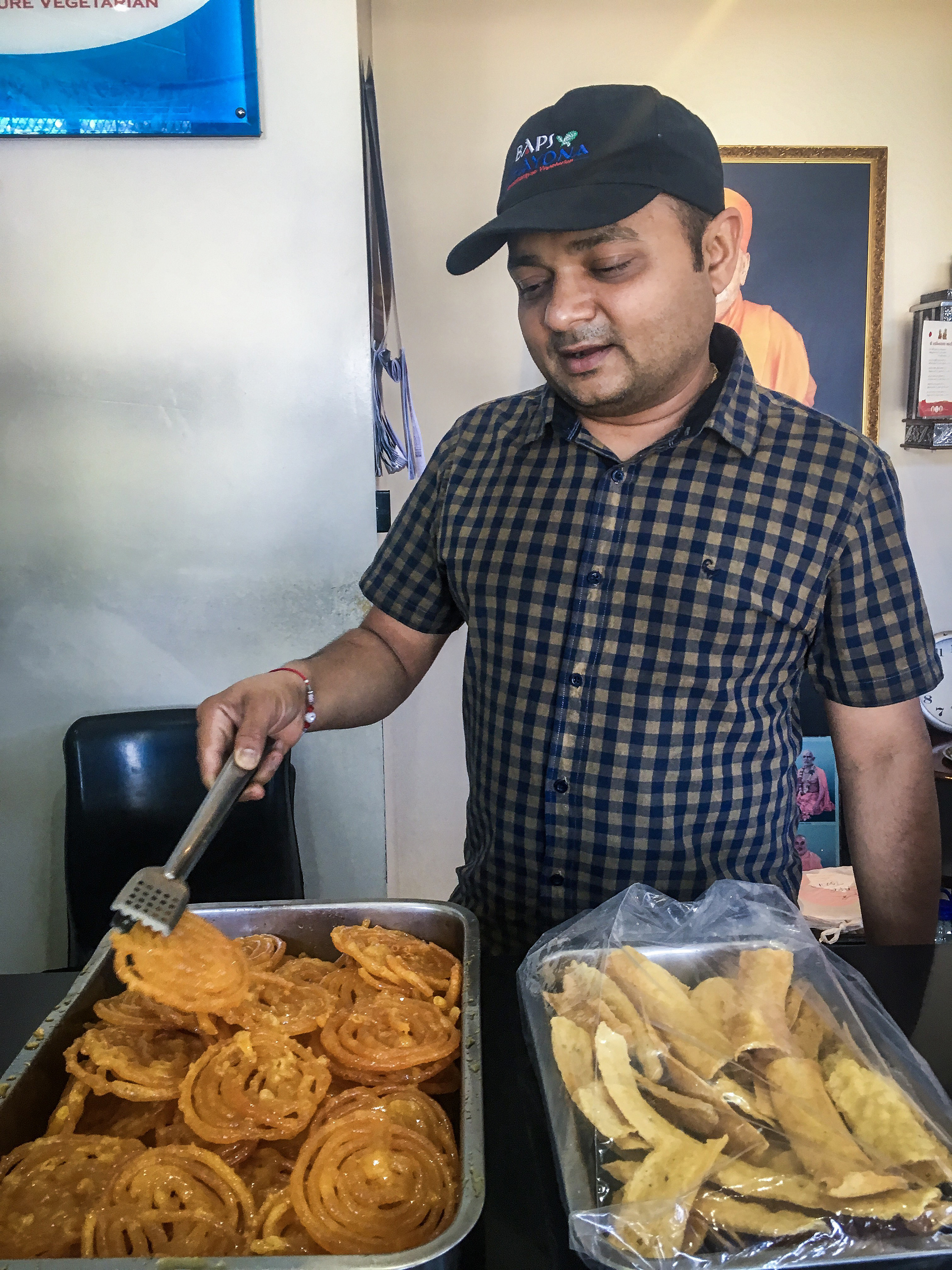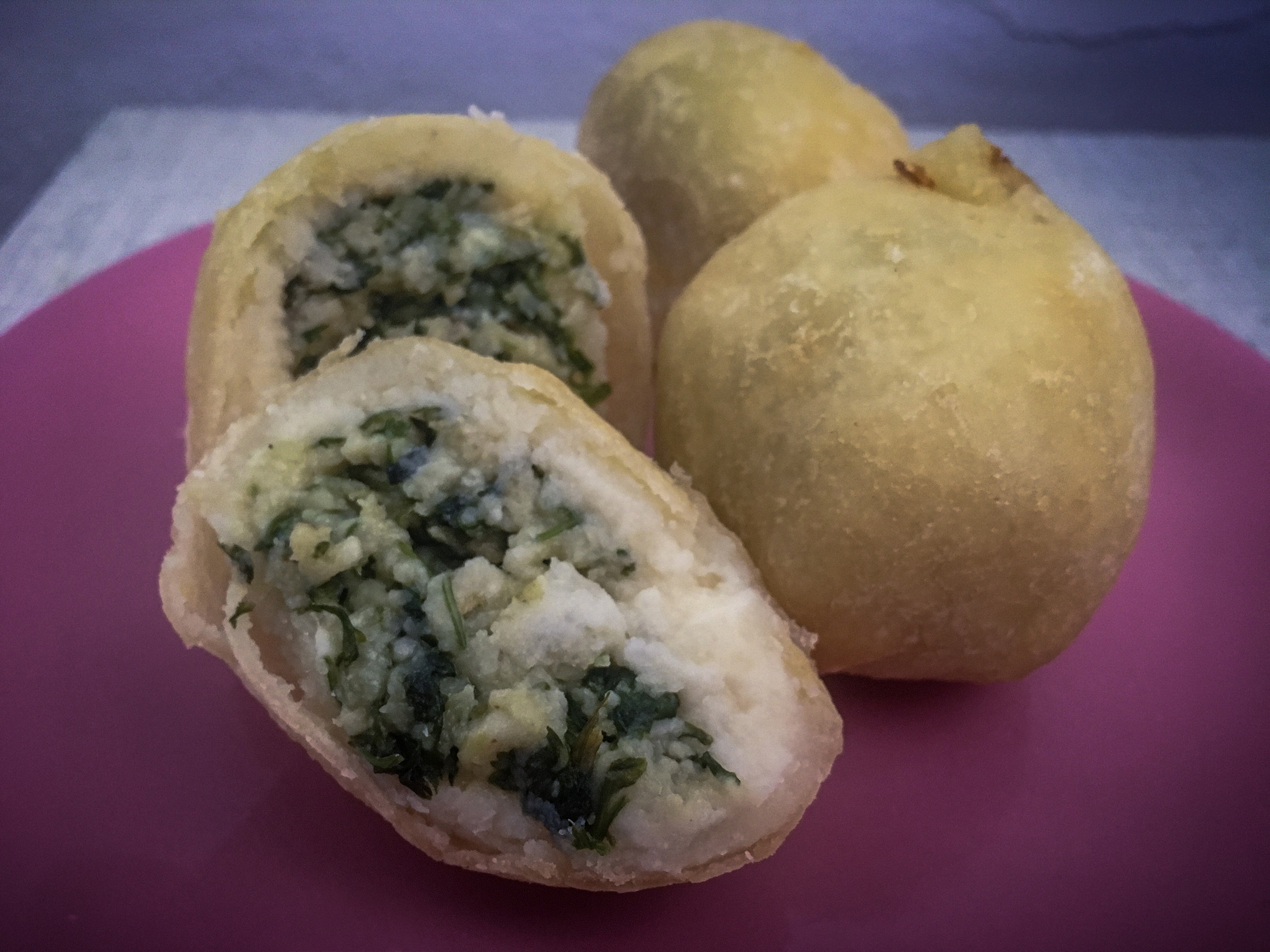ALLERGIC TO NUTS
Deliver me to the dosas – Cape Town’s real curry kingdom

Years after leaving Durban’s spicy delights behind, I finally unearthed a decent source of Indian food in Rylands, Cape Town, where Table Mountain is a distant landmark that seems to belong to other people.
I fell in love with Kuben at a Rainbow Chicken work braai. The lawns around the long, squat poultry houses were full of mushrooms and fire ants, and that day I didn’t care if my sundress caught alight, or I picked my nose in front of him, or told him that my parents were actually CIA spies. No. While the adults stood around the ember-filled half-drums, my father in his safari suit and long socks, my mother making awkward small talk with Mrs Gopal and Mrs Pillay, my new friend and I did roly-polies down the banks and a lot of walking around.
At the end of the evening, as congealed wors was being stashed in Tupperware, and sandals trod cooling grass towards Corollas, Kuben and I hatched a plan. I would go and stay at his house for the weekend. Then we could spend the whole time together and he could show me to his friends. My father said yes, my mother said “Mmmmm”, Kuben’s father was enthusiastic and his mother merely smiled. My father drove me home to pack a bag and then dropped me off at the Rainbow gatehouse, kissing me on the cheek and telling me to call if I needed to come home.
I was six. Fresh off the plane from northern England. Here because my microbiologist father was offered a job, and jobs in England were scarce, and the apartheid government would pay him to swell the numbers of whites in the country. And we were very, very white: pale as the eggs deposited in the laying houses, hair like mycelium, with a culinary lineage of curry made from stewing beef, raisins, pineapple and all-spice. And, possibly, turnips.
Kuben and his family lived in a cramped flat in downtown Grey Street in Pietermaritzburg. They did Hindu prayers every morning and evening in front of spiky metal statues, had a seatless toilet with just two bricks on either side of a hole, and it felt like we ate curry constantly. Or, rather, it felt like everyone else ate curry constantly; I licked at the corners of my fork, cried tears of agony, and quietly deposited the food into a Hello Kitty purse I kept on my lap.
On the Saturday, Kuben’s mother took us shopping in Grey Street. She made me walk on the opposite side of the road so the police wouldn’t arrest them for harbouring a white girl. She bought us lucky packets and Kuben introduced me to his friends, and they looked at me like I was weird. That evening, I began to itch, and a woman with burn marks all over her arms came to the flat and threatened Kuben’s cousin with a knife. And I itched some more, as though a million fire ants had crawled under my skin, and maybe they were punishing me for being with this family. I tried to sleep, but the burning wouldn’t stop, and I peed in the bed and spent the whole night trying to scrub the sheet dry with the pillowcase. The next morning, Kuben’s mother ran me a bath with Dettol and called my father. I had barely eaten the whole weekend. My back, arms and chest were raised and angry, and I smelt like a clinic.
When my father arrived I wanted to throw myself at him, but didn’t want to offend Kuben’s family. And when his mother produced plates of crab curry, I whispered into my father’s ear: “Dad, will you eat mine?” Two days later, I was diagnosed with scarlet fever. I lay in bed for most of the week and decided Kuben and I could never be friends. I was also now certain my parents were CIA agents. Who would allow their six-year-old child to go off with strangers for the weekend? In a place where people had burn marks and knives and prayed to metal statues and had net curtains?
Now, a million years later, I often wonder what happened to Kuben. I’ve tried finding him online. I want to explain the wet bed. And find out what happened to Burnt Lady. And see if he survived that vile time, of blocks of flats and police in yellow vans and not being able to go to the movies. I want to tell his mother that the sweetmeats she would send home with my father every Diwali were like heaven and that, over the years, I’ve cooked crab curries that may have been even hotter than hers. And I’ve learnt how to balance the flavours of cumin, coriander, and discovered that more is more when it comes to curry leaves, and good tamarind is hard to find.
When I moved from Durban to Cape Town 13 years ago, I was initially excited about being in a city everyone – including foreigners! – wanted to visit. And, oh, the restaurants, and the fragrant people drinking coffee at all times of day, and the white people walking everywhere, and the tanned women with their bottoms sticking out on the beaches. And the hikes, and the people working on laptops in cafes, and the boutique wine shops, and the expensive kaftans, and the yoga, and the importance of frankincense, and the confidence of people to order eggs just like they wanted them. But after a while, something was missing and I felt a shrivelling. Kind of like ET when he goes all grey and flaky because he needs to get back home.
“We need curry,” I told my husband. “Proper south Indian curry, not this bland Malay stuff, nor poncy tapas, or coconut shite. Proper Durban curry: dahl, puri patha, vada, breyani.”
Back in Durban, one of my favourite places to eat was Little Gujarat, a small restaurant and takeaway downtown, where elderly men with big ears would while away the afternoon sipping enamel mugs of masala chai and tucking into samoosas and dahl. After eating, patrons would walk like T-Rexes, sticky hands dangling in front of their chests, to a basin in the corner for a good washing. It was a ritual that always made me happy.
“We need to find a Gujarat in Cape Town,” I said. “Then everything will be alright.”
Except proper south Indian food is hard to find in Slicksville. I tried those so-called oriental food places, where the curries are so cheap they may well be made from gnats and pine cones and the chefs slaving over the tandoor stoves look like, well, slaves, freshly demanacled after a 12-year voyage from Bangladesh. The naans were okay, dripping in butter and bucket-garlic.
As a default, we bought filled rotis from Sunrise Chip ’n Ranch in Mowbray, thinking that because they were a branch of Sunrise in Durban, their curries would deliver the flavours we craved. But, evidently, Capetonians accustomed to rolls stuffed with oil and Russians are not in the market for fragrant spice melanges.
And. Then. A friend took me to Rylands. Yes, white people, it’s a place. To Baps Shayona. Into a small shop fragrant with cumin and masala and incense. To the right, past shelves packed with toothpaste, hair dye, chana snacks and ayurvedic tonics, and past a display fridge neatly stacked with sweetmeats of every colour (even ones shaped and coloured like slices of watermelon), was a small alcove with a clutch of tables and chairs, enough to seat about 16 people. In the corner of the shop was a basin.
Finally.

Hiren Patel serves jalebi sweets at Baps Shayona in Rylands, Cape Town. Photo: Helen Walne
That first day, I was modest. I bought two curries to take away and a punnet of freshly made puri patha. That night, we lay on the couch in a daze, and my ET skin started to gain colour and I stopped sticking out my index finger hoping it would glow. Instead, I licked my hands like a rescue dog and announced that we would dine on Baps at least once a week.
Over the years, during my twice-weekly forays to Baps, I’ve got to know the men who run the shop – Rignesh, Hiren and Bhadesh – and have learnt that Baps is a non-profit, pure vegetarian restaurant with a charitable foundation inspired by Pramukh Swami Maharaj (there’s a big picture of him behind the till) and they also have branches in Lenasia, Mayfair and Laudium. I’ve tried probably every curry they’ve made – the paneer is a favourite, as is the chickpea and the broad beans. The puri pathas aren’t quite Durban standard, but they’re still excellent, and I have only recently discovered petish: evil potato balls stuffed with coriander, chilli and coconut that will make even the most Kommetjie of hippies cry with gratitude, joy and abundance.

Petish – an evil potato ball filled with coriander, green chilli and coconut that is worth driving for. Photo: Helen Walne
Then there are the punjabi samoosas, packed to the gills with a potato and split pea curry; the methi rotis, studded with fenugreek leaves; the pillowy parathas best eaten in the car on the way home.
Some days I’ll stop for lunch in the backroom, staring at the Bollywood music videos on the wall-TV as I try not to seem like a wild boar, tucking into a selection of their snacks. These would be called “small plates” or “tapas” in Bree Street. Here in Rylands, where Table Mountain is a distant landmark that seems to belong to other people, they are merely called “snacks”: pani puri – delicate hollow pastry balls containing a potato and chickpea puree, with the top lopped off to create a hole into which you pour mint water – or dosas as thin as airmail paper.
And as I wash my hands in the sink, the swing doors to the kitchen might open, revealing a glimpse of two women and their band of helpers creating this delight in the heat. And I wonder: if I just tried harder, I could find Kuben on LinkedIn, or I could ask my father to help me track him down. Or, if you’re reading this, maybe we could go for a curry some time? DM
Helen Walne is an aspirant vegan who detests food snobs, kale fascists, tartare sauce and misplaced apostrophes on menus, but is very fond of broccoli.






 Become an Insider
Become an Insider